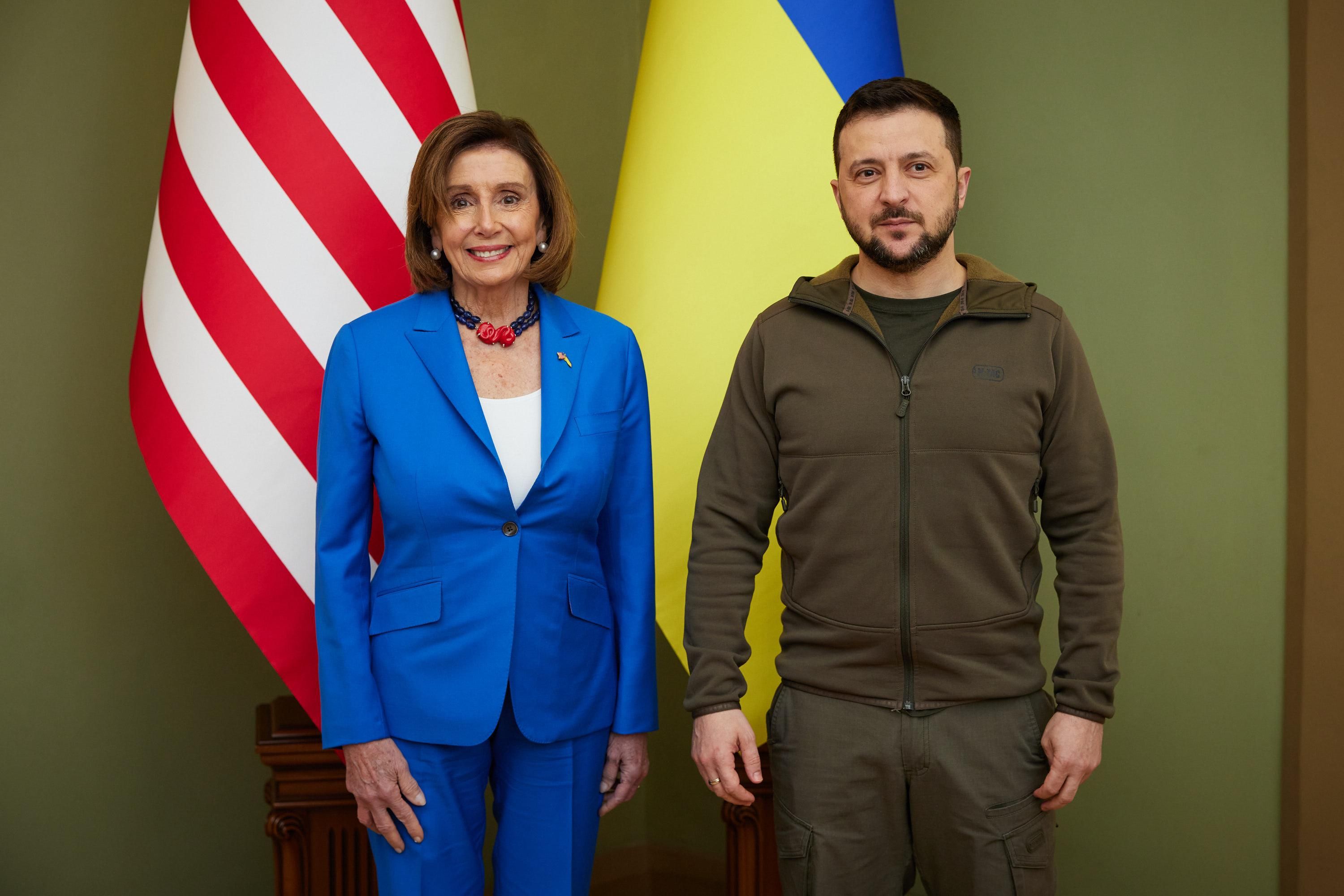What We're Watching: Pelosi in Kyiv, Indian scorcher, Modi tours Europe
Pelosi visits Ukraine — will Biden go next?
Over the weekend, House Speaker Nancy Pelosi became the highest-level US official to visit Ukraine since Russia launched its invasion. Pelosi met with President Volodymyr Zelensky on Sunday amid growing pressure from Kyiv for President Joe Biden to travel to the country, which Zelensky feels would be a symbolic show of US support for Ukraine. Biden has so far been non-committal, but Pelosi's trip is arguably more significant at this time, given that Biden wants the US Congress to approve $33 billion in additional aid for Ukraine. Meanwhile, a long-awaited operation was underway to evacuate 100,000 people trapped in a steel plant in Mariupol, the only part of the besieged Ukrainian port city not yet occupied by the Russians. The UN is coordinating safe passage with the Red Cross for the evacuees to reach Zaporizhzhia.
India on fire
For weeks, vast swaths of northwest India — along with parts of neighboring Bangladesh and Pakistan — have been suffering a record-breaking "heat dome" that pushed surface temperatures beyond a blistering 60 C (140 F) on Saturday. On top of putting hundreds of millions at risk of death from extreme heat and fires, the prolonged scorcher has worsened an already acute shortage of coal due to high global prices and the war in Ukraine. This is a big problem because most Indian cities rely on coal-burning plants to generate electricity, which could mean power cuts for hospitals, offices, and factories. What's more, the heatwave has forced farmers to harvest crops early, throwing a wrench into India's plans to export more wheat to make up for the shortfall in production from Russia and Ukraine. So, what'll PM Narendra Modi do about it? Keep reading ...
Modi goes to Europe
On Monday, Narendra Modi is kicking off visits to Germany, Denmark, and France, where he will meet with German Chancellor Olaf Scholz and French President Emmanuel Macron. The main agenda item? Making progress on a proposed EU-India free trade agreement, one of several FTAs that Modi wants to secure to attract foreign investment to help the Indian economy recover from the pandemic. But the elephant in the room will be India's neutrality on the Russian war in Ukraine and recent moves to buy cheap Russian oil despite sanctions – policies at odds with EU unity against Russia and long-term plans to wean the continent off Russian energy. Still, don’t expect the Europeans to put too much pressure on the Indians on such a prickly issue.
